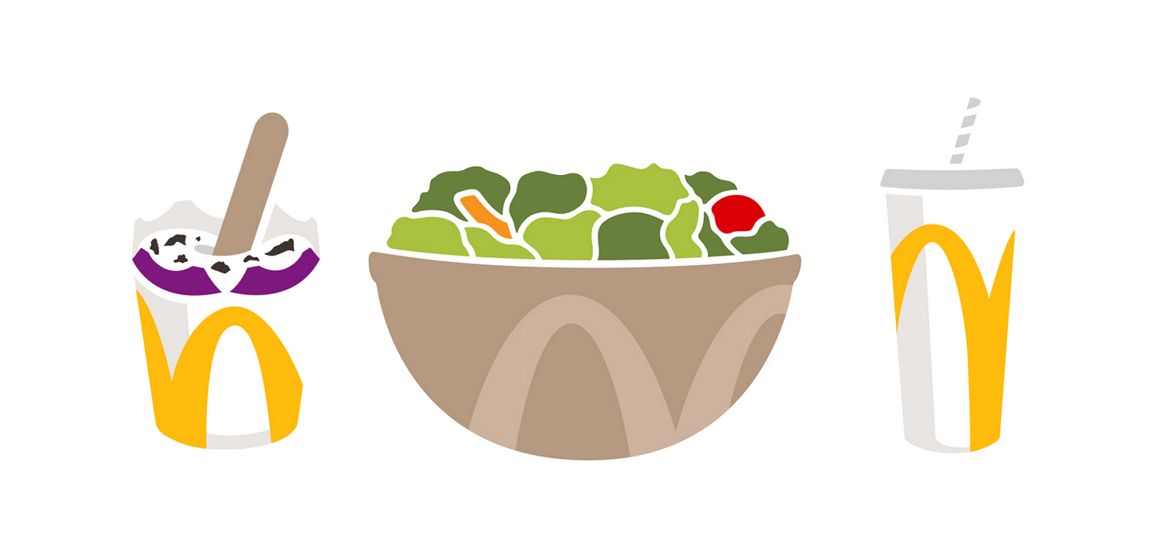Driving Circular Solutions to Reduce Packaging Waste
June 05, 2020
Developing a Sustainable Packaging Strategy on a Global Scale
We know that when packaging isn’t recovered correctly, it’s a problem for the planet, creating pollution and damaging ecosystems.
Today most of our global packaging weight comes from fiber materials (78%), with the remaining 22% comprised of plastics. And while some plastic packaging is necessary to keep food fresh and safe, McDonald’s wants to be part of the solution and use our scale to accelerate a “circular economy”.
Our goal: To source 100% of our guest packaging from renewable, recycled or certified sources, and recycle guest packaging in 100% of McDonald’s restaurants by 2025. We understand that recycling infrastructure varies from city to city and country to country, but we plan to be part of the solution and help influence powerful change.
To achieve this, our packaging and recycling strategy encompasses a wide range of initiatives to reduce our use of packaging, switch to more sustainable materials and help our customers to recycle. We’re also working to close the loop by using more recycled materials in our packaging, restaurants, and facilities, and helping to drive global demand for recycled content (Learn about our packaging and recycling strategies in detail.)
But we can’t do this work alone. Key to success are our partnerships with organizations such World Wildlife Fund. As Principal Partners of the WWF ReSource Plastic Platform, we’re working with other platform members to advance solutions that can scale. Over the past year we’ve shared our plastics footprint data with ReSource as part of a collective effort to find ways to keep plastic out of nature.
What does progress look like? Here are some ways we’re making headway:
Eliminating Hard to Recycle Packaging and Material Waste
- We gave our McFlurry ice-cream packaging a makeover, eliminating the need for a separate plastic lid. This change is in place in Australia, some markets in Asia, and will be implemented across Europe by the end of 2020.
- In France and some restaurants in Canada, we’ve introduced an innovative new fiber lid for cold drinks. The new fiber lids replacing the plastic lid are made from 100% certified sustainable sources and recyclable materials.
Investing in Renewable and Recyclable Packaging
- McDonald’s is a founding member of the NextGen Consortium and supporting the Next Gen Cup Challenge in the US, a project to find a fiber-to-go cup which is recoverable and to test reusable cup systems.
- In Germany, we are piloting a program called ReCup, where customers can ask for a reusable coffee cup and return it at partnering restaurants to be cleaned and reused.
- We’re testing coffee cup recycling schemes to find the best ways to scale up recycling and provide quality recycled material which can be reused in new packaging. In the UK, our paper cups are sent to specialist recycling centers to make different recycled products, such as park benches, from the fiber and plastic lining.
Testing Sustainable Alternatives and Finding Solutions
- Around the world we’re trying out paper straws in place of plastic straws, and rolling out a more durable paper straw design in Europe. We’re also offering straws upon request in several markets to cut down material use and drive behavior change.
- We’re also working to find a more sustainable solution for plastic cutlery globally and currently testing alternatives in several markets, such as wooden cutlery in Australia.
- In Germany, we opened the Better McDonald’s Store - a nearly plastic-free restaurant in Berlin for 10 days – to collect feedback from customers on different solutions
Read more about our strategic approach to advancing a circular economy here.

